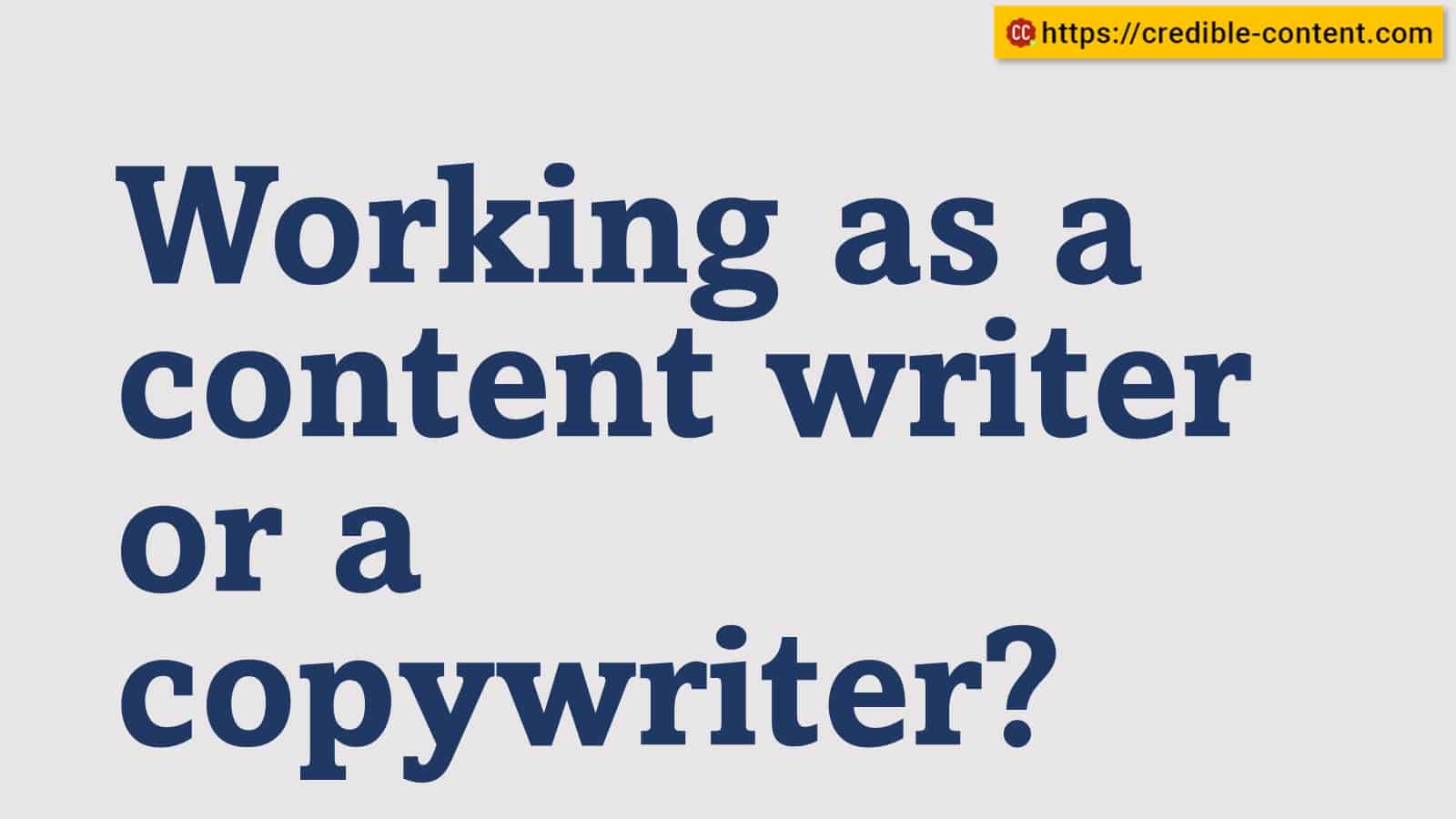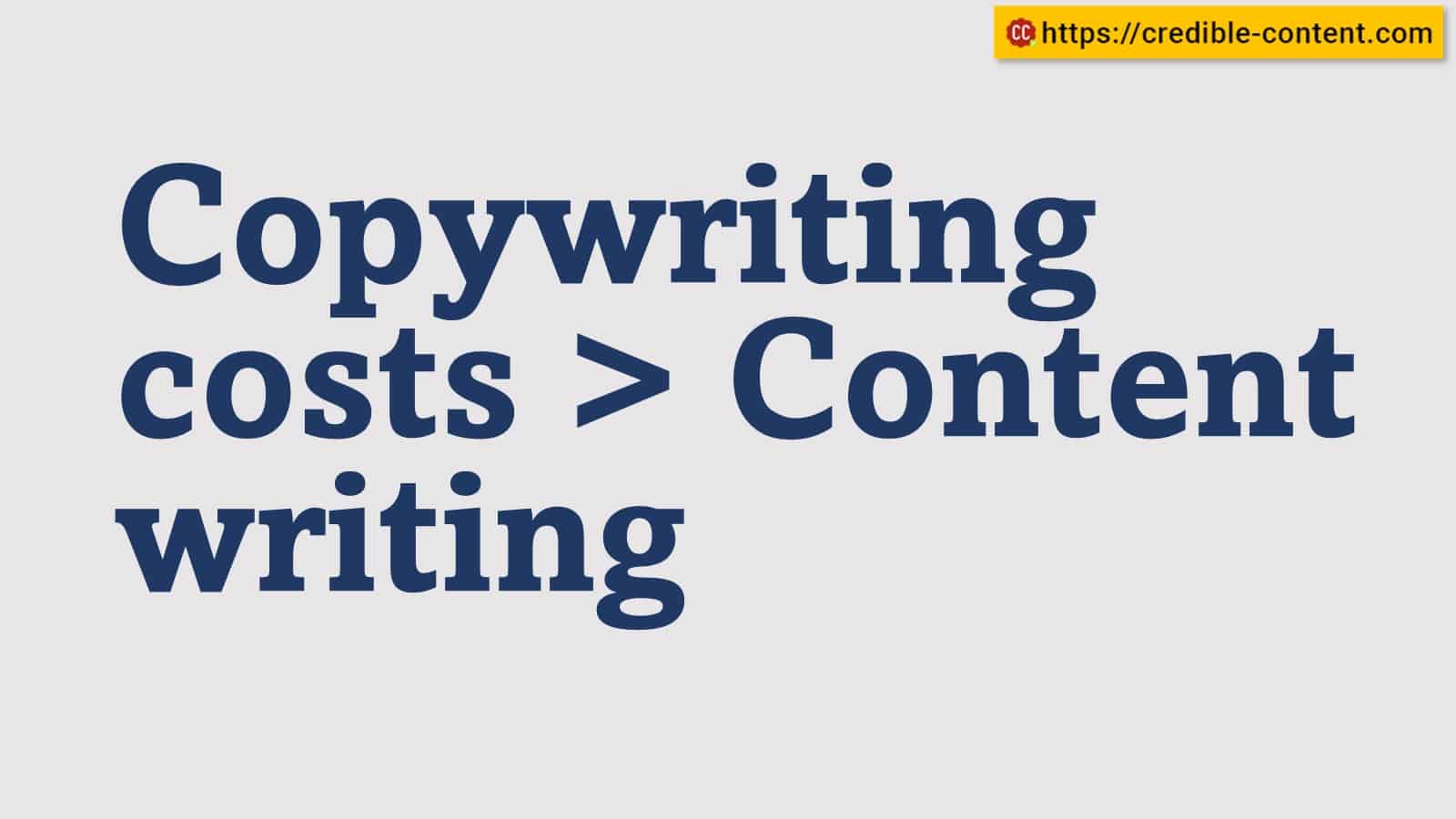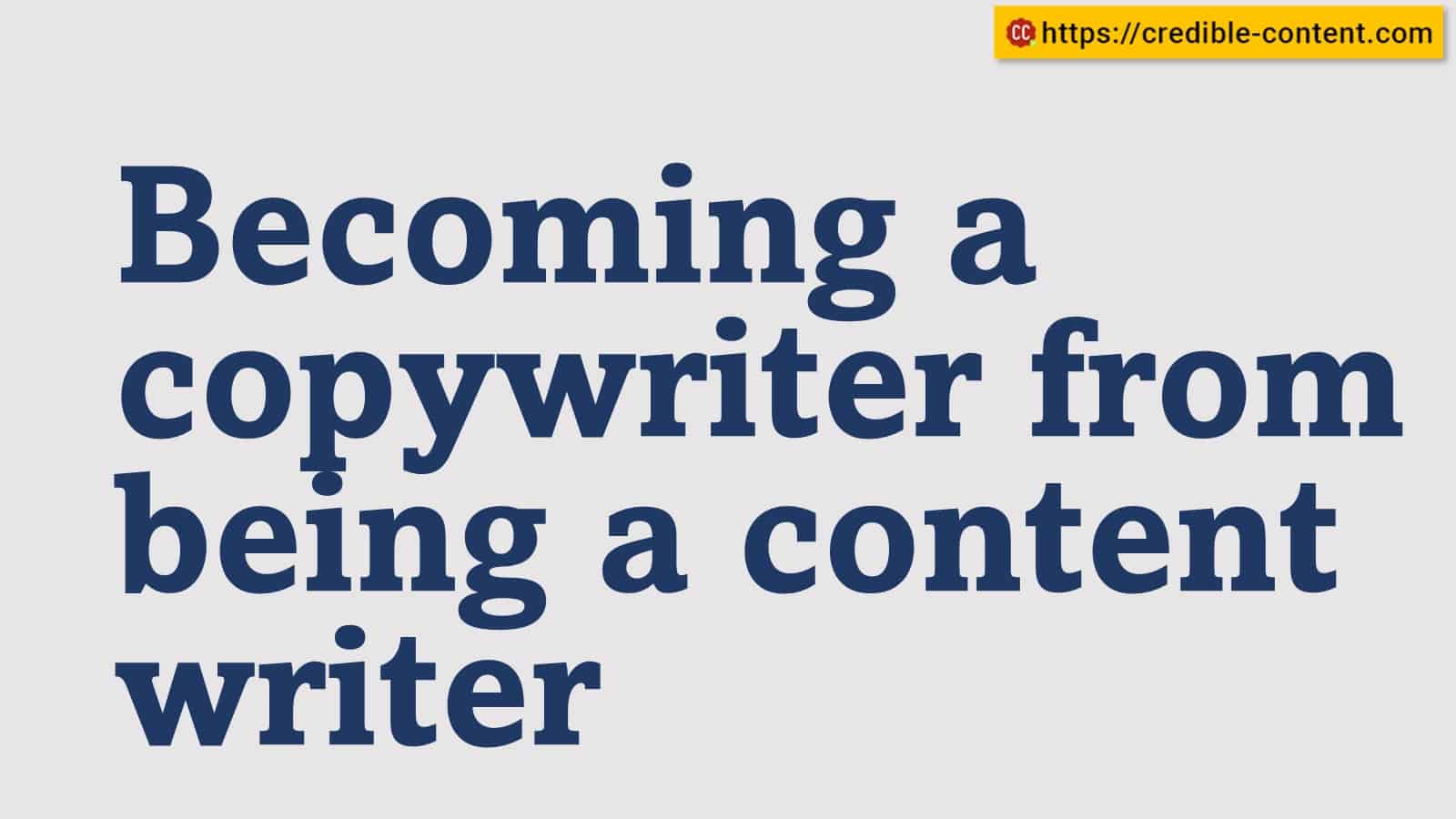Usually, the line between being a content writer and copywriter is constantly being blurred when you are writing for blogs and websites.
Whereas content writing mostly involves writing informational and educational material, copywriting is more about convincing and persuading people into becoming paid customers and clients.
As a copywriter you write for
- The main sections of a website such as the homepage, the services page/pages, company profile, and product descriptions.
- Landing pages.
- Email marketing campaigns
- Brochures and other marketing materials.
As a content writer you write
- SEO content.
- Blog posts.
- Instructional articles.
- Generic content on the website.
- Social media posts (non-commercial).
- Case studies.
- White papers.
- Every other piece of content that aims to inform and engage the audience.
I have been writing content for more than 17 years now.
My writing style is quite flexible.
Whether clients need an SEO content, blog posts, main website content, landing pages, case studies, or email marketing campaigns, I have been writing relentlessly, but just as a content writer.
I have been performing tasks of a copywriter as a content writer.
The disadvantages of working as a content writer while being a copywriter
The disadvantages are multipronged.
There is of course, the financial aspect.
Whereas I should be paid as a copywriter, I am being paid as a content writer.
This way I’m not realising my actual earning potential.
This gets me trapped in a rut and prevents me from taking on assignments that can actually help my clients grow their businesses.
I’m mostly doing grunt work whereas I can do some really creative work.
Without knowing, even clients suffer.
Over the years I have noticed that they don’t take a content writer as seriously as they would take a copywriter.
This is obvious.
Since I’m not educating my clients (about me working as a copywriter and not a content writer), when I try to charge them more, they balk at my rates.
“Other content writers are not charging this much,” they often say.
When I tell them that I’m not writing like other content writers, they find it difficult to understand because they have hired me as a content writer and all I’m doing is, writing content for them, just like any other content writer.
It’s not their fault. It’s my fault.
Even while working as a copywriter, I have been promoting myself as a content writer.
Hence, when they find me on the Internet, they find me for my content writing services, and not for my copywriting services.
I’m changing that.
From being a content writer, I’m transitioning to being a copywriter.
Why copywriting costs more than content writing
First of all, I don’t mean to say that if you are a content writer you are less of a writer than a copywriter.
I’m just saying that copywriting requires more expertise than being a content writer.
I have realized this more when I started hiring other content writers for my business.
I’m working with 15 content writers right now.
Although they can write blog posts, articles, and social media posts, none of them have been able to write content for business websites of my clients.
Even if I try to assign them some work for writing for a landing page, an email campaign, or even the main website, ultimately, I need to rewrite most of the text.
Educating as a content writer is easier.
Making people pay for products and services is harder as a copywriter.
The When you are writing for the main web pages you need to convince people.
You need to persuade.
For example, if I write for your app development company, after reading your text, your visitors must hire you as an app developer.
All your main website pages are intended to generate business for you.
What does generating business mean?
It means you are able to influence people in such a manner that they are ready to spend money on you.
This is a difficult job to achieve.
Without being convinced, people don’t even spend a single dollar.
Copywriting does the job of convincing people into spending money on your business.
It’s not a mean achievement.
There is no such compulsion for a content writer.
The job of a content writer is to increase your visibility and draw people into your sales funnel.
There is no commitment.
There is no stake.
As a content writer you’re not asking people to spend money after reading your text.
This is why copywriting costs more than content writing.
Can you transition into being a copywriter from being a content writer?
Depends on your writing abilities.
Content writing is about informing and educating.
Copywriting is about selling and converting.
You may like to read: Difference between copywriting on content writing: explained
As I have mentioned above, currently I’m working with 15 content writers and none of them can write for main business websites, landing pages and email marketing campaigns.
The success of your copywriting job is scrutinised with greater degree than your content writing job.
In content writing, your job is to deliver a well written piece of content that is easier to read and digest.
You don’t ask people to spend money.
You don’t ask them to make a commitment.
In copywriting you tell people to spend money on a product or a service.
You convince them into taking an action.
This Forbes article on the difference between copywriting and content writing explains in the following manner:
As a content writer you educate or entertain readers by creating high quality and valuable content.
Your content may drive sales in the long term, but that’s not its primary purpose.
Copywriting involves the creation of text content to persuade readers to take some type of action related to your business’s sale process.
You need to convince prospective customers that the product you are writing about is worth buying.
Or your business is worth calling.
Copywriting is the art of persuading readers to take a sales-related action.
When you work as a copywriter your language needs to change.
Your writing style must be conversational.
You should know how to use psychological triggers to convince and persuade your readers into taking an action.
Your writing should be able to hook your readers.
Some people have a natural flair for copywriting.
Some writers have gained enough writing experience (like yours truly) and just need to fine tune certain aspects of convincing and persuading.
Some writers need to learn from scratch.
They need to have basic writing skills.
To writers who have the basic writing skills and inclination but would like to become copywriters, I would suggest start following some established copywriters on LinkedIn.
There are many useful videos on YouTube where people share their copywriting tips and tricks.
In my personal experience, LinkedIn is the best source.
On blogs and YouTube videos, it’s mostly regurgitated stuff and people simply repeat themselves.
On LinkedIn on the other hand, people share their hands-on experiences and also give real-world examples of how certain pieces of copywriting perform well.
Additionally, copywriting depends a lot on your experience as an entrepreneur, a motivator, a learner, a listener, and an observer.
You can develop these qualities.
As a copywriter, when you are writing for a landing page or an email campaign you need to have a deep understanding of
- What the business needs to achieve (for which you are copywriting).
- What the product or the service you’re writing about delivers – what are its biggest capabilities.
- What are the expectations of the target audience – what problems people are facing and what solutions they’re looking for.
Learn about power words.
Learn how to write compelling headlines.
Read books and LinkedIn threads on copywriting.
Follow influential copywriters on LinkedIn and Twitter.
Start practicing a conversational writing style.
Develop a habit of understanding your audience and then writing in their language.
Learn to love writing instead of doing it just to earn money.
Start building a swipe file to save good examples of high conversion copywriting.




